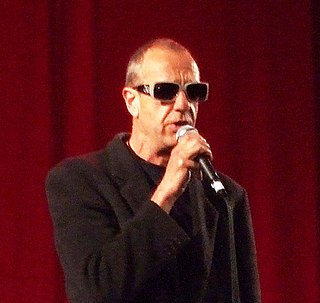A Quote by Kazuo Ishiguro
One need hardly dwell on the catastrophic possibility of uttering a bantering remark only to discover it wholly inappropriate
Quote Topics
Related Quotes
It is all very well, in these changing times, to adapt one's work to take in duties not traditionally within one's realm; but bantering is of another dimension altogether. For one thing, how would one know for sure that at any given moment a response of the bantering sort is truly what is expected? One need hardly dwell on the catastrophic possibility of uttering a bantering remark only to discover it wholly inappropriate.
Every man, when he gets quiet, when he becomes desperately honest with himself, is capable of uttering profound truths. We all derive from the same source. There is no mystery about the origin of things. We are all part of creation, all kings, all poets, all musicians; we have only to open up, only to discover what is already there.
We need limitations and temptations to open our inner selves, dispel our ignorance, tear off disguises, throw down old idols, and destroy false standards. Only by such rude awakenings can we be led to dwell in a place where we are less cramped, less hindered by the ever-insistent External. Only then do we discover a new capacity and appreciation of goodness and beauty and truth.
It is the mark of a mean, vulgar and ignoble spirit to dwell on the thought of food before meal times or worse to dwell on it afterwards, to discuss it and wallow in the remembered pleasures of every mouthful. Those whose minds dwell before dinner on the spit, and after on the dishes, are fit only to be scullions.
Catastrophic health shocks do enormous damage to families both economically and otherwise, and are easy to insure, because nobody gets them on purpose. On the other hand, insurance policies that only treat certain catastrophic illnesses are hard to comprehend, especially of you are illiterate and unused to the legalistic nature of exclusions etc.
If humanity wishes to preserve a planet similar to that on which civilisation developed and to which life on Earth is adapted, paleoclimate evidence and ongoing climate change suggest that CO? will need to be reduced from its current 385 ppm [parts per million] to at most 350 ppm... If the present overshoot of this target CO? is not brief, there is a possibility of seeding irreversible catastrophic effects.





































